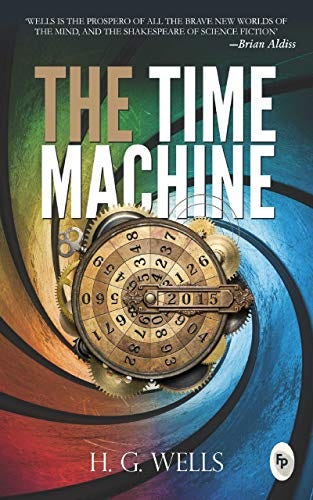Time travel is one of those irresistible tropes that truly breathes life into content. Be it in books or on screen, a well-executed time travel plot seldom fails to impress. In fact, if the time-traveling in question obeys the laws of actual physics, then a true treat is at hand. Of course, I do not wish to Neil de Grasse Tyson the science into this newsletter.
What I do wish to do is to critique how limited a job H.G. Wells may have done in purportedly deploying time travel for the first time.
The Limits of our Imagination
One of the best features of imaginative literature and speculative fiction is that even as the worlds they construct claim to go beyond the limits of human understanding, they are often limited by our all too human biases. Every time I see an outcry over a fictional fantasy character’s skin tone, sexuality, or choice of attitudes (the instances are far too many and the hyperlinks far too few: the night is long and filled with hurt “fans”), I am baffled at how one wishes to accommodate one’s hatred into one’s narrative.
In the case of this book, Wells’ future appears to be a critique of the forces of communism and capitalism he may have been experiencing at the time of penning the work. While this is by no means a limiting factor, it is certainly a sad one.
This is especially the case given that the more recent forays into time travel have tackled multiple difficult questions and complex narratives. For my part, the sort of time travel fiction that Stephen King’s 11.22.63 peddles is the precise sort of science-fiction foray that I enjoy. Having said that, the mind-breaking implications of movies like Predestination also make the best out of an imaginative trope.
The Future State of Things
This book, like several others, works on attempting to guess the future. Both the futures that Wells’ Time Traveler visits are bleak and I would suspect that had he lived in the climate change-stricken, hate-driven world of 2022, the years he traveled to would not have been so far off.
What instead compelled me is that Wells truly envisioned a world amusingly far off in the future where humans would still exert some sort of control. The podcast The End of the World paints a similar picture, while the excellent Dying Earth series (the eclectic collection Songs of the Dying Earth is one of the best pieces of literature I have ever read) works on the brilliant premise of how the people occupying the world at the cusp of it ending would behave.
I am often reminded of this T.S Eliot quote when discussing such an idea: “This is the way the world ends…Not with a bang but a whimper.”
This newsletter will end with a bang though if you grace it with a share and a follow. Do travel back in time and read some of the earlier posts below, especially if you are a new reader. Until next time!



